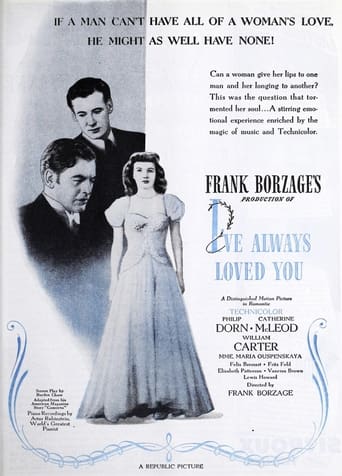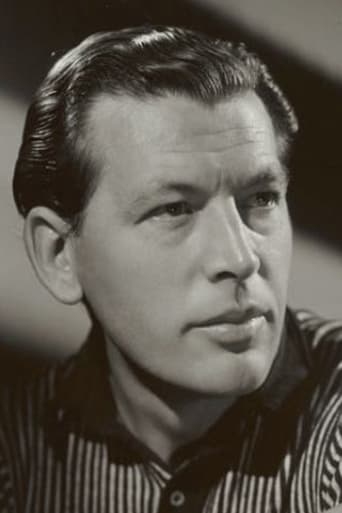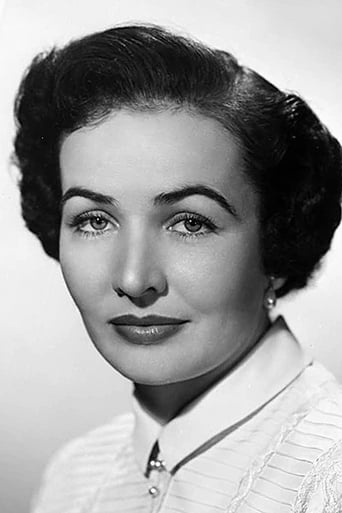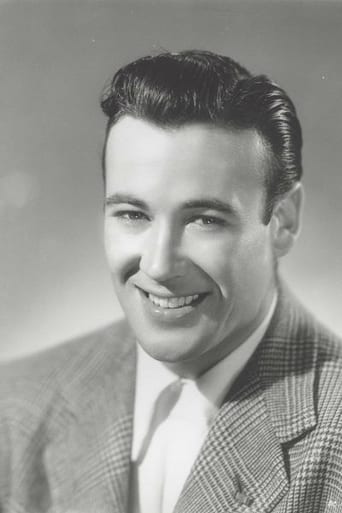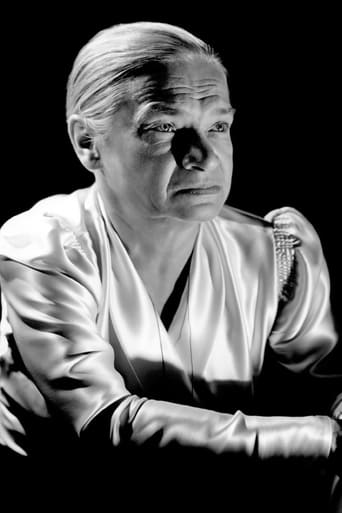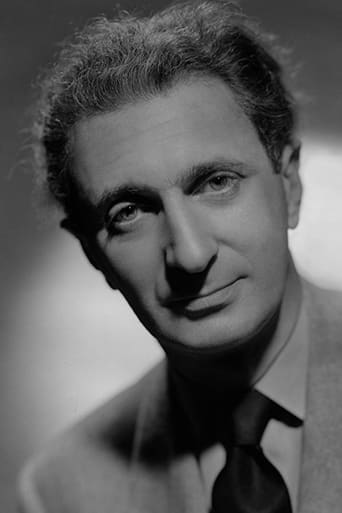Solemplex
To me, this movie is perfection.
Whitech
It is not only a funny movie, but it allows a great amount of joy for anyone who watches it.
PiraBit
if their story seems completely bonkers, almost like a feverish work of fiction, you ain't heard nothing yet.
clanciai
It's a very good story, like an interesting experiment in musical psychology, delving into and trying to reach the very essence and nature of the extreme sensitivity of the musical sense, but the acting is a bit stiff, and the story, although tremendously good and interesting, doesn't quite come alive. Catherine McLeod saves the picture, her acting is wholly satisfactory and convincing all the way, but the others are at times a bit too wooden. Philip Dorn is more abominable than not as the utterly rude and indecent conductor who thinks he can go at any length in insulting Catherine in the name of music, and no wonder she abandons music on conditions like that. There are many details in this artificial set-up that just don't work, they are neither credible nor natural, but there is nothing wrong with the idea. Although Frank Borzage made several films of music, and they are all good, it's over-evident that he was no musician himself. On the whole, forget the flaws in the acting, the direction and the lack of musical realism but please follow and study the idea and the story, because the thoughts behind all this were humanly and psychologivally very interesting indeed.
mark.waltz
A promising start doesn't transfer into a successful middle or end, leaving this romantic drama about a classical pianist as an interesting artistic disappointment. Catherine MacCleod, an innocent young pianist, like Ingrid Bergman in "Intermezzo", falls in love with her mentor, Philip Dorn. But unlike Leslie Howard in that 1939 classic, Dorn is not married, just a philanderer who treats MacCleod like a child and as any task master, work her too hard, often abusing her and when she shows him up in her Premier concert, accuses her of trying to overshadow him. In ascent, she's sort of a trilby to hit send golly, and not even his kindly Mother, Maria Ouspenskaya, can bring him down to earth.One of Republic studio's more ambitious endeavors, this was filmed in color and certainly looks lovely. The performances for the most part are sincere, although Ouspenskaya's constant slow delivery of lines often bothers me. Elizabeth Patterson adds a humorous touch of warmth to the role of MacLeod's landlady who owns the farm boarding house with her kindly father, Felix Bressart. Patterson's son, William Carter, falls in love with the young Catherine, and is obviously more worthy of her love than the egotistical Dorn. As directed by Frank Borzage, one of the great creators of classic melodramas, this is often very slow, plodding and sometimes even a bit too artistically over ambitious. There are many moments where thus feels like it is about to wrap up, but on it goes to another plot development which often changes its mood. While the first quarter is breezy and light hearted, the remainder bogs into pretentiousness which often makes it a bit of a bore. The music is of course lovely, but then again, so are lullabies.
dbdumonteil
...and I always will...Some say his post WW2 works were inferior to the thirties major works .Perhaps so.But it is no reason to dismiss them."I've always loved you" is unique,it defines music as a way of communicating emotions.Leopold and Myra use Rachmaninoff (mainly "Second" ),Beethoven ,Lizt and other musicians to express their admiration,their tenderness,their love,their jealousy,their pride,their lust for life,their hate,their contempt ,you name it.In the central scene ,where Myra plays the piano with Leopold's full symphonic orchestra is a real desperate fight ,probably the best concert scene ever filmed (with the eventual exception of Hitchcock's "the man who knew too much" (1956))And that scene is followed by another one where the two musicians ,although miles apart ,continue their "conversation" in a strange telepathy.The audience who knows Borzage's earlier works (such as "three comrades" "little man what now?" "mortal storm" "cargo" ...) might be disoriented while watching the beginning of the movie .But the master's touch is still here.Two elements are Borzagesque:the first is George's character.He is akin to Hans ("little man" ) and to the "three comrades" .He is the man who believes in true love ,the simple man who is like a bull in a china shop when he attends the first concert but whose heart is always in the right place.And the other one is Mme Maria Ouspenskaya (she is granted a "Mme" during the cast and credits!) who was the unforgettable mother of Martin (James Stewart) in Borzage's memorable "mortal storm" .Here she portrays Leopold's mother with authority.Her death is a great moment of delicacy when the music stops in her hand.Probably not as appealing as Borzage's earlier works,this film is yet waiting to be rediscovered.
liehtzu
Borzage's romantic melodrama follows a gifted young (female) pianist torn between her egomaniacal maestro and the absurdly good young farm boy she grew up with (played by a creepy, almost psychopathically serene Bill Carter). The music is really played by Arthur Rubinstein (who was given a huge paycheck for the time, especially considering the studio, Republic pictures, whose first color film this was) and features some great - if in the end excessive - pieces by Rachmoninoff and others. The characters are ultimately uninteresting and so sadly it hardly matters who ends up with whom, though everyone tries their best. It's all very nice though ultimately forgettable. The highpoint of this rather lavish production is the beautiful technicolor cinematography, which is quite nicely captured in the print restored by UCLA that is used on the laserdisc and VHS tape editions.
